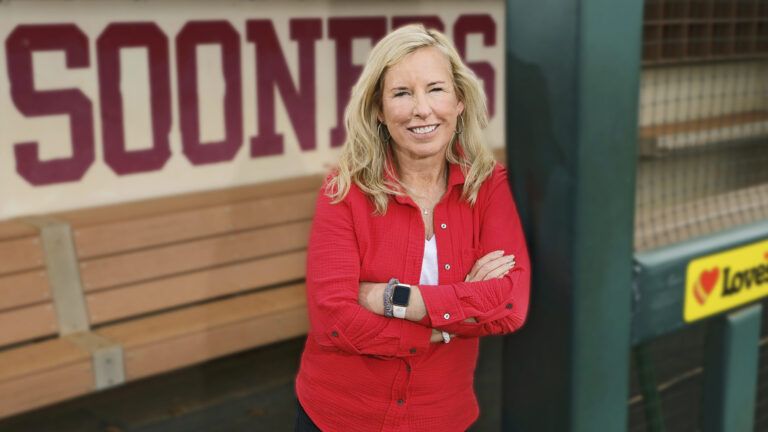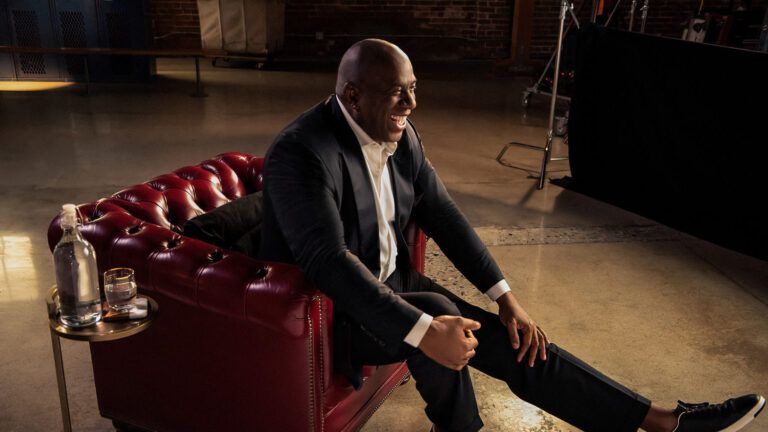I was in the longest batting slump of my major-league career. It was 1990, and instead of playing third base for the St. Louis Cardinals, I was sitting on the bench.
Worse, it was the last year of my contract. Just the season before, I’d had one of my best years, slugging a career-high 13 homers and winning my second Gold Glove. But I knew the Cardinals wouldn’t pick up my option. And who else would want me, playing the way I was?
When you’re in a slump, it’s almost impossible to see the light at the end of the tunnel. Nothing goes right. Maybe the best way to describe it is to explain what it’s like when you’re not in one.
The opposite of a slump is a groove. When you’re in a groove, everything clicks. Life is a joy. Even with the ball coming toward the plate at 90 mph, it looks twice its normal size, as big as a grapefruit, and you “lock in.” Time seems to slow. Your swing is practically automatic and nearly perfect. The feel of the bat making solid contact is just about the sweetest thing I know.
Even when you don’t get good wood on the ball, it goes “where they ain’t,” as Willie Keeler used to say. Everything works. Your reflexes are electric. Even your fielding is sharpened.
When you’re mired in a slump, though, the ball looks like a BB coming in. You’re always off-balance and fooled by the pitch. You start guessing wrong: This guy’s thrown me three straight sliders. I’m going to sit on his fastball. He’s got to come in with it sometime. You stand with the bat on your shoulder as the pitcher drops another breaking ball through the strike zone, something he wouldn’t dare risk if you were in a groove.
One afternoon when the first hint of autumn teased the crisp air at Busch Stadium, I slouched in front of my locker after having checked the day’s lineup card. Again my name wasn’t penciled in. I didn’t feel like taking batting practice.
Dejected, I was bouncing my bat on the carpet when my teammate Rod Booker sat down next to me. Rod’s a friend. We came up through the minor leagues together, and we were both members of the Cards’ Bible study and Baseball Chapel groups.
“Terry,” he said, “you can’t let this beat you down.”
I respected Rod. He too had been having problems. A torn-up knee had hampered him all year, and manager Joe Torre was talking about sending Rod back to Triple A ball for rehab. Even riding the bench in the majors is better than going back to the minors. Yet Rob was serene, confident. He didn’t let it get to him.
“Remember Arkansas back in ’83,” he said, “when you fractured your wrist and they moved me over to third?”
“I’ll never forget it,” I said with a rueful laugh. It had been the low point of my career, till now. Yet I came back and played in the Texas League All-Star Game that year, and Rod went back to shortstop where he belonged.
“Terry, God is in charge. I know it’s not always easy to see. All he asks of us is to trust him.”
I’d been trying to convince myself of that, to put my faith to work. But my wife, Catherine, was expecting our first baby, and I was worried about our future. “Maybe this isn’t a slump, Catherine,” I said one night. “Maybe I’m finished.” She ran her fingers through my hair and told me that things would get better.
It was hard to believe. I’d prayed for God’s help in enduring the slump. Still, I felt abandoned. I rested my hand lightly on her belly. The baby was due, and the way it was kicking it seemed as if it could be any minute. Catherine placed her hand over mine and squeezed gently.
“All I want,” I said, “is to get a chance to play every day. If I play every day, I’ll get straightened out.”
She smiled. “Remember the story you told me about when you were a kid in Little League? You were the worst player on the team!”
I had to laugh. It was true. When I was nine or 10 I couldn’t play ball to save my life. I got one hit all year long. “I used to go home crying after every game,” I recalled. “I was awful!”
“And you told your mother and father that you wanted to quit,” she prompted me.
That was true too. I was ready to throw in the towel. My parents would have let me. They were very understanding. But my father told me something that really got me thinking. He said that life is full of setbacks, but they are temporary. “They don’t last, son. You’ll see. Give it time. You’ll improve.” He was right, of course.
Later that night, when we were ready to go to sleep, Catherine and I prayed together. We prayed for a healthy baby. I closed my eyes and thought back to what Rod had said about God being in control, and about Dad saying that setbacks are only temporary.
Suddenly I realized that God doesn’t throw obstacles in our paths for us to stumble. God wants us to overcome life’s inevitable hurdles so that we can go on. He wants us to succeed. “Lord,” I prayed, “help me to see my problems as temporary, and to know that your grace is forever.”
“Amen,” Catherine said.
A week later, our daughter, Stephanie, was born. Her birth was the only thing in that whole bad stretch that made me forget about my slump. The season ended with me still sitting on the bench. Rod gave me one last piece of advice before he went home to California for the off-season.
“Let God make the next move,” he said as he emptied out his locker.
Okay, I decided, driving home from the park. You take over, Lord. I’d forget about what I wanted. I pulled into our driveway, overjoyed at the thought of holding my new daughter again.
The call came in December. It was from Bobby Cox, then manager of the Atlanta Braves. “We want you for this ball club, Terry. We want you as our everyday third baseman.” He went on to say that every player is entitled to an off year, and that he’d had more than his share when he was a player.
“We think you’ll like the park down here. It’s smaller than Busch. That’ll help your stats. You’re our first choice, Terry. We hope we’re yours.”
Well, it didn’t take much discussion or prayer for Catherine and me to make our decision. I’ve been a Brave ever since. I had the best years of my career in Atlanta, but I also had my ups and downs. We won two pennants, but we lost two World Series.
Winning and losing, that’s part of being a ballplayer. But it’s more—it’s part of life. I remember Catherine telling me one day that she has her slumps too, periods when things aren’t clicking. “Everyone goes through it, honey,” she said.
That’s what my dad was trying to tell me. Life’s setbacks are temporary. But God’s love is permanent. He’s always there to take us over the rough spots, to lead us out of our slumps and into our grooves.
For more inspiring stories, subscribe to Guideposts magazine.





